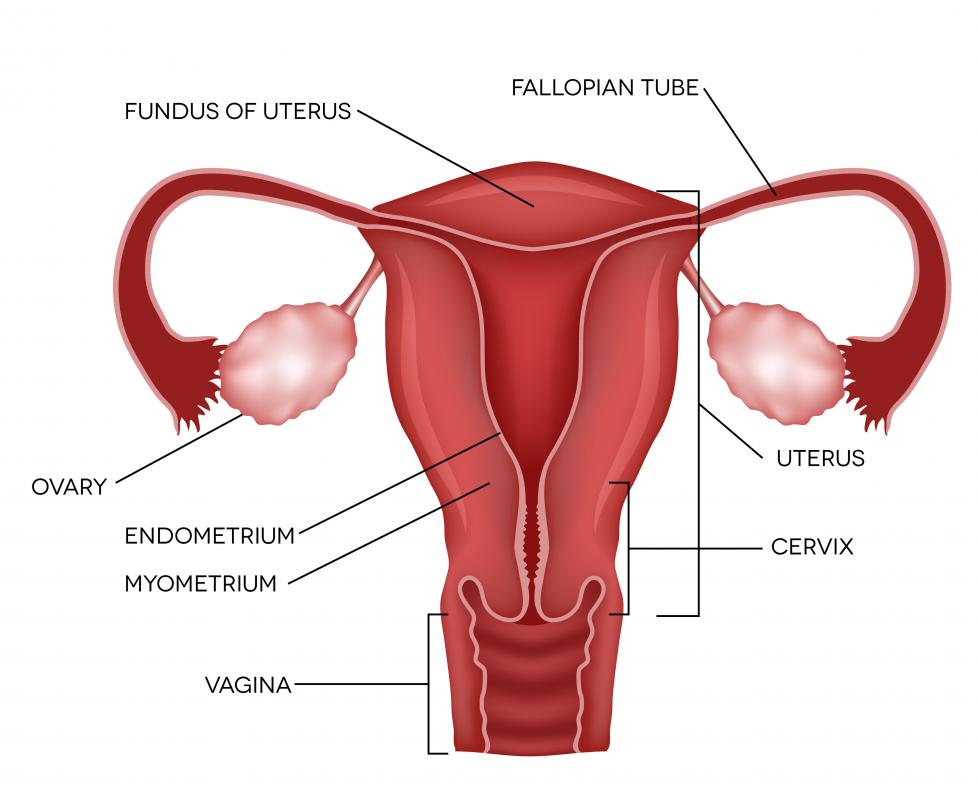At WiseGEEK, we're committed to delivering accurate, trustworthy information. Our expert-authored content is rigorously fact-checked and sourced from credible authorities. Discover how we uphold the highest standards in providing you with reliable knowledge.
What Is Bombesin?
Bombesin is an amino acid found in the digestive system. It is a peptide with a chain of 14 amino acids. Although it is not fully understood, it is known to play an important role in the release of gastrin, the activation of G-protein receptors in the brain and the initiation of the negative feedback loop that stops eating. It also can be an indicator of developing tumors related to certain types of cancers. This complex amino acid is located in the nerves of the gastrointestinal tract.
With a key role in digestion, bombesin stimulates the release of the hormone gastrin. Gastrin subsequently causes the release of gastric acid from the stomach walls. This helps to break down food in the stomach and assists in moving food particles along the digestive tract by controlling the contraction of smooth muscles. Gastrin is released from G-cells, which are enterendocrine cells in the stomach walls and glands.

Bombesin acts in the stomach to suppress the appetite. This amino acid peptide was originally discovered in the skin of frogs that use the action of bombesin to their advantage. By interfering with the metabolic processes of the body, the peptide leads to a buildup of waste products in the frog's glands that can be released as a defense mechanism when the frog is threatened. It is hypothesized that the feeling of fear in humans might also be related to bombesin.

The manner in which food is digested in the body and how this relates to the sensation of hunger is an extremely complicated process. Receptors in the brain respond to signals from the digestive tract, and bombesin is one of two chemicals that initiate a negative feedback loop that controls eating behavior. Along with cholecystokinin, bombesin responds to food in the stomach and stimulates the brain to release a satiety signal. The loop works via negative feedback because the fuller the stomach, the greater the signal to prevent further eating.

An increase in the activity of bombesin receptors can be indicative of a number of different types of cancer. These include small cell carcinomas in the lungs as well as ovarian and breast cancers. Other types of cancers that might be indicated are pancreatic, prostate, nervous system, thyroid and colorectal cancers. Research into peptide markers and tumor growth was in its infancy as of 2011, but some scientists believed that research into this peptide's relationship to cancer cells might be valuable in discovering a cure for the disease.
AS FEATURED ON:
AS FEATURED ON:
















Discussion Comments
@Iluviaporos - The one thing that can be guaranteed about an appetite suppressing pill (or other method) that really works is that it will sell in massive quantities.
So I imagine that if this amino acid has the potential to contribute to that, there are a whole bunch of pharmaceutical companies putting a lot of money into researching it right now.
Personally, I think the best appetite suppressant is to eat lots of vegetables. The fiber fills you up better than I think a pill with bombesin in it ever could.
@pastanaga - The problem is that, as it says in the article, hunger is not as simple as that. There's more than one chemical that reduces hunger and they can be triggered by different things, and they need different things in the body in order to work.
I can see why this would be related to a fear response though, as if you are afraid of something you'd definitely want to not be hungry at the same time. But, could they make a pill that would only have the appetite suppressing effect of the amino acid and not the fear response? Would it work for people who eat out of habit, rather than because they actually feel hungry?
I'm sure this could lead to a breakthrough in medical knowledge at some point, but I don't know how close they are to it at the moment.
I've heard that researchers have been pursuing an understanding of this amino acid in order to try and come up with a pill that would truly suppress hunger.
At the moment they have some pills that do various things to make people feel less hungry, or do other things to make sure they don't gain weight, but none of them are particularly good, or they have nasty side effects.
If they can manage to figure out how this works and create it in pill form, it would be a wonderful way to help stop people from eating themselves to an early grave.
Post your comments